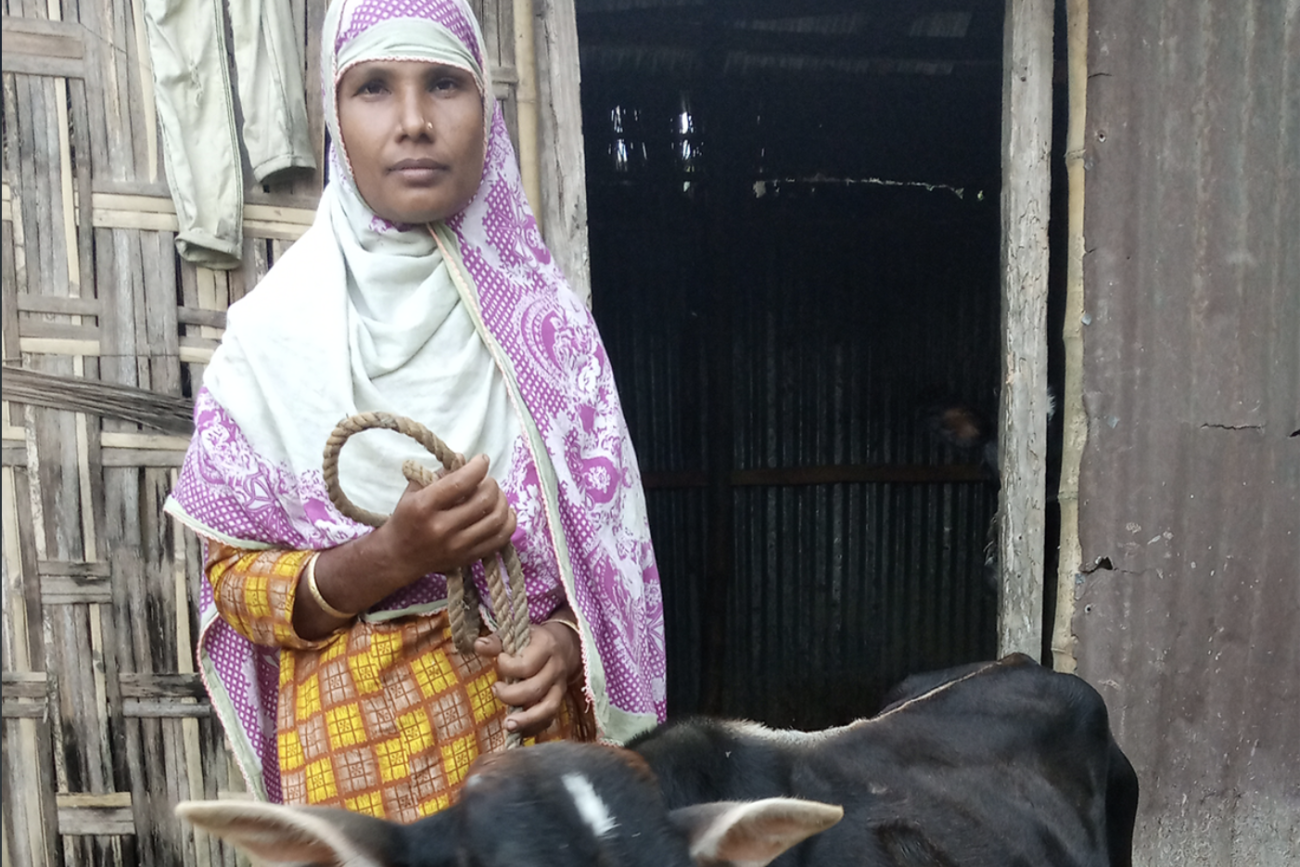Agile in Response: How a Bangladeshi start-up is revolutionizing digitization in the farming sector

With nearly four million cases worldwide, the impacts of COVID-19 have been devastating. Particularly in low and middle-income countries, the effects have had significant social and economic impacts, and have disproportionately impacted those most vulnerable. Due to government shutdowns, enterprises have been left struggling to deal with new operational and financial challenges.
In Bangladesh, the once bustling streets of Dhaka are eerily quiet as citizens are staying at home. There have been tremendous efforts from the Government, the United Nations, civil society organizations and non-government organizations in trying to minimize the spread of the virus and deal with the economic consequences. Another important player is the private sector, especially the vibrant start-up culture in the country.
Any successful start-up needs to be agile and be able to identify opportunities where others see barriers. This becomes even more crucial in times of crisis where flexibility is critical. In Bangladesh, the FinTech company iFarmer is one of the many start-ups that is showing this agility by securing a deal with an e-commerce platform in less than five days.
In 2019, the United Nations Economic Commission for Asia and the Pacific (ESCAP) and the United Nations Capital Development Fund (UNCDF) launched the Women MSME FinTech Innovation Fund. This Innovation Fund supported iFarmer to enable access to finance and markets for micro, small and medium sized farm enterprises.
Before the pandemic, the Innovation Fund was supporting the iFarmer digital app to create a profit-sharing model between urban investors and rural women farm entrepreneurs that involves the purchase and management of livestock. After successful livestock management (raising and selling cattle), the investor(s) and woman entrepreneur share the profits, while iFarmer collects a management fee. Given the success of the livestock revenue sharing model and supply chain created, iFarmer began working with vegetable and fruit farmers and was planning to add additional products in late 2020.
This innovative business model not only creates an additional source of income for rural women, it also creates a profitable and socially impactful investment option for investors.
Since the pandemic, iFarmer had to adjust and speed up its plans. For livestock farmers, the transport and sale of cattle has become difficult. Currently, iFarmer is consulting with farmers and the Government, via mobile meetings, to identify potential avenues to safely sell cattle. For farmers on the iFarmer platform that have no alternative source of income, iFarmer is providing temporary assistance, such as basic food supplies.
The stay at home measures have created a new opportunity for home delivery of vegetables. In an effort to limit the spread of COVID-19, Bangladesh has restricted movement and access to areas where large numbers of people can gather. This includes the wholesale marketplace where people buy vegetables and food items, such as Karwan Bazaar, the largest market in the country. With limited access to these markets, people need another method to purchase food items.
This is where digital technology shows its potential.
iFarmer introduced vegetable products on its platform for farmers seeking a new revenue source. Using the iFarmer platform, vegetable farmers can access crowdfunding resources to grow and sell vegetables.
In a remarkable speed of only five days, iFarmer partnered with Priyoshop.com, an e-commerce platform, to sell vegetable items on their platform (a first ever). iFarmer also partnered with Truck Lagbe, a logistics start-up, to transport vegetable items from farmers to Priyoshop.com warehouses. Customers can order, for delivery, vegetable items from Priyoshop.com that are supplied by iFarmer farmers. Setting up this new supply chain mechanism would normally take months of negotiation. Yet it was accomplished in a fraction of the time in order to respond to a critical and immediate need.
This adapted approach from iFarmer meets a critical need for grocery delivery, while supporting women farmers in finding new sources of income. It is a testament to the agility of start-ups and their role in finding innovative ways to operate in an emergency context. iFarmer intends to invest in building a data driven, efficient, and inclusive supply chain of fresh produce and is in talks to partner with other online groceries and services. UNCDF and ESCAP are now exploring opportunities to extend financial support to iFarmer in scaling up this initiative.
In addition, iFarmer will seek opportunities to supply to “super shops” and retail grocery stores, giving them the access to quality, low cost fresh farm produce directly from farmers.
Produced by UNCDF. To learn more about iFarmer, the Women MSME Fintech Fund and the UNCDF and ESCAP response efforts, read the complete article originally published here.





































